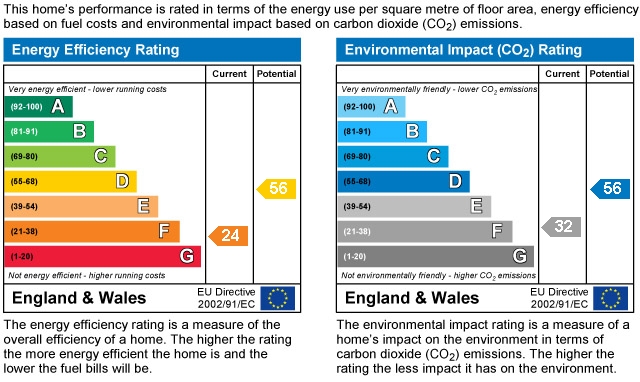Energy Performance Rating
What is an Energy Performance Certificate?
An Energy Performance Certificates also referred to as an EPC is now required by legislation, before any property can me marketed For Sale or To Let.
Thomas Estates provide an in-house domestic energy survey service at competitive fee for properties built before 2008. This service is available to anyone selling or renting and not necessary to be marketing a property with Thomas Estates. The service has a reputation for accurate and speedy production of certificates and assessor accredited by Building Research Establishment who conduct regular audits to maintain high standards of professionalism.
An Energy Performance Certificate shows the official energy efficiency rating of a property. If you're not planning to sell your home, you don't need to do anything.
The certificate provides you with a rating for the building, showing its energy efficiency and its environmental impact on a scale from A-G (where A is the most efficient and G the least efficient), in graphical format. It also contains recommended ways to improve the building's energy performance.
By 2009, all buildings in the UK that are constructed, sold or rented out will have to have an Energy Performance Certificate, in accordance with the European Energy Performance of Buildings Directive.
New or renewed tenancies after 1st April 2018 must have an EPC rating of at least an E band. Pre 1st April 2018 tenancies must have at least an E band no later than 1st April 2020.
The certificate will also provide contact details for the Energy Saving Trust, who can help you find out whether you could be eligible for grants or discounts to help carry out these improvements to your home. It will also list simple ways that changes in behaviour can save you energy and money - without the need for any works.

*example of an EPC
An energy assessment of your home will involve both an internal and external inspection of the property. For the purposes of obtaining an Energy Performance Certificate, a fully accredited Domestic Energy Assessor (DEA) or Home Inspector can only undertake them. It is advisable to ask the DEA to bring along proof of accreditation when attending the appointment.
Energy Performance Survey
When the DEA arrives, he or she will need to inspect, and make note of, the following property details:
- The year of property construction
- Walls and roof construction
- Signs of wall-cavity insulation
- Energy-saving "green" devices (such as solar panels, for instance)
- Number of double glazed windows and when installed
- Number of open or closed fireplaces
- Make and model of boiler and the type of flue and fuel used
- Number of low energy light-bulbs
- Type of heating system used and controls (wall thermostat etc...)
- Roof insulation and thickness.
- Measure the thickness of the hot water cylinder jacket or foam.
- Check for excessive window area in larger houses and take measurements of conservatories and extensions.
- Note the number of habitable rooms that are heated.
- Measure the internal or external areas of the home.
- Sketch and make notes relating to home and room layout
Ways have your home more energy efficient
Improving the energy efficiency of your home can mean either making changes to the building, or simply changing your behaviour to save energy. Energy Performance Certificates will give you advice on both of these areas.
Installing energy-efficient measures
Here is a list of some of the measures that the certificate might recommend:
- Low-energy light bulbs. These last up to 12 times longer and use around 80 per cent less energy than traditional filament bulbs
- Hot water tank jackets. These can cut heat loss by around 75 per cent
- Loft insulation. Fitting insulation that is at least 250mm thick could cut heat loss by around 30 per cent
- Cavity wall insulation. If you have unfilled cavity walls, installing insulation could cut heat loss by over 30 per cent.
The cost of the measures recommended will vary, but the certificate will distinguish between those that cost under £500 and those that could cost more, such as double glazing or new heating systems. The certificate will also list further measures that will help achieve the highest possible ratings for the home, but which could be expensive and will take more than seven years to repay their cost in energy savings.
|
